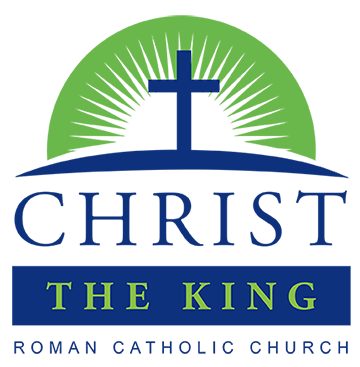The Catholic Church in the US is in the middle of a three-year Eucharistic Revival. The purpose is to strengthen Catholics’ faith in the sacrament of the Eucharist. We are now in the second year of the revival, which is focused on parish efforts. This page belongs to one of those parish efforts, a four part series on the Eucharistic Prayers.
Between the Sanctus (Holy, Holy, Holy Lord God of hosts…) and the Our Father, there are four options for a part of the Mass called the Eucharistic Prayer. The older term, better known to some of you, is the Canon of the Mass. These prayers are “the center and high point of the entire celebration” of the Mass (GIRM no. 78). Because the Mass itself is the greatest of the seven sacraments and the “source and summit” of the Christian life, these prayers are extremely significant to the Catholic faith. We cannot place them on the same level as Scripture, but we could place them just one level below. Everyone has heard of Bible studies, but have you ever considered studying the Eucharistic Prayers? That’s what we’ll do in this
series.
Eucharistic Prayer IV is almost never used by priests, so I’ll address only Eucharistic Prayers I through III in this series. But before we examine the text of these three options, I’d like to comment on the Eucharistic Prayer in general.
The introductory notes in the Roman Missal – the big red book on the altar – explains “the meaning of this [Eucharistic] Prayer is that the whole congregation of the faithful joins with Christ in confessing the great deeds of God and in the offering of Sacrifice. The Eucharistic Prayer requires that everybody listens to it with reverence and in silence” (GIRM no. 78). Here the Church formally asks us to pay close attention to the Eucharistic Prayer. Since this is a
point in the Mass in which it is easy to daydream, it’s helpful to study the words, so when we hear them prayed at Mass, they are more familiar and more meaningful.
The Eucharistic Prayer begins with the following exchange between the priest and the assembly:
V. The Lord be with you. R. And with your spirit.
V. Lift up your hearts. R. We lift them up to the Lord.
V. Let us give thanks to the Lord our God. R. It is right and just.
Then the priest prays the Preface, which changes based on the liturgical season or feast day. At the end of the Preface, everyone sings the Sanctus. The first half (“Holy, Holy, Holy Lord God of hosts…”) is from Isaiah 6:3, the angel’s words in Isaiah’s vision of the throne of God. The second half (“Hosanna in the highest…”) is from Matthew 21:9, the crowd’s words to Jesus when he enters Jerusalem at the beginning of Holy Week. Hosanna means something like “Please save us!” After the Sanctus, the assembly kneels and now the priest chooses to continue with one of the four options.
The Eucharistic Prayer, like the whole Mass, is directed to God the Father through Jesus Christ. Every prayer begins by addressing “God,” “Lord,” or “Father” and ends “through Christ our Lord.” This rule of prayer reflects a well-known rule of faith: Christ reconciles us with God through his sacrifice on the Cross. Thus we approach God, and in prayer address God, through Christ.
The Eucharistic Prayer ends with the a doxology (literally, a word of praise) most often sung by the priest: “Through him, and with him, and in him….” – that is, through Christ our Lord, with Christ our brother, and in the body of Christ, the second Person of the Trinity. “O God, almighty Father” – the first Person of the Trinity. “In the unity of the Holy Spirit…” – the third Person. Our rule of faith about the Trinity also influences our rule of prayer.
